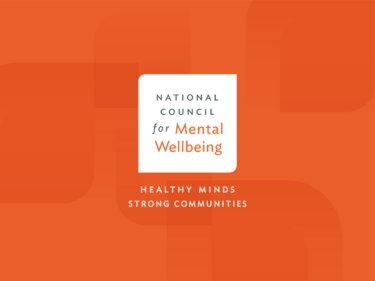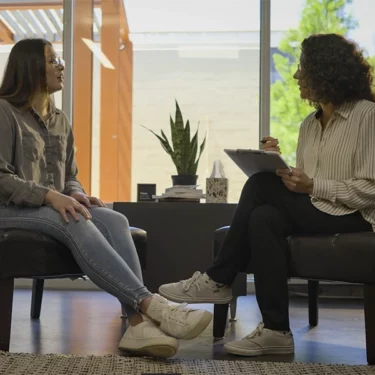Structural racism has infected numerous American institutions, including health care.
As we observe Black History Month, it’s vital to our national wellbeing that we both acknowledge and address health inequity so we can meaningfully improve the lives of all Americans.
Unfortunately, a raft of statistics indicate that Black Americans receive worse medical care and worse care for mental illness and substance use disorders. The barriers to access that Black Americans face often are insurmountable, despite the demonstrated need for care.
For instance, Black Americans die from COVID-19 at nearly three times the rate of White Americans, according to research from the Centers for Disease Control and Prevention (CDC), but recent data also shows they are vaccinated at alarmingly lower rates than White Americans.
A Kaiser Health report earlier this month said 1.2% of White Pennsylvanians had been vaccinated as of January 14, compared with 0.3% of Black Pennsylvanians.
Barriers to access aren’t the only hurdle Black Americans face. Deep mistrust of the health care system also has suppressed vaccinations. That mistrust is due in part to the notoriously unjust episodes in medical history including the Tuskegee Syphilis Study, which ran from 1932-1972 at the Tuskegee Institute in Alabama, and the harvesting of Henrietta Lacks’ cancer cells – without her knowledge or consent – in 1951 when she sought treatment at Johns Hopkins Hospital in Baltimore. Eugenics programs in the South and elsewhere resulted in atrocious acts against Black Americans, including forced sterilization, in the name of medicine.
In addition to lower vaccinations and a dramatically higher death rate, COVID-19 has taken a horrific toll on the mental health of Black Americans.
A CDC survey released in last August showed that nearly 41% of those who responded reported symptoms of anxiety or depression or increased substance use and that nearly 11% said they had seriously considered suicide over the previous 30 days, compared with just over 4% who said that in 2018.
But among Black Americans, 44% reported symptoms of anxiety and depression and 15% said they had seriously considered suicide.
One study found that suicide rates among Black Americans doubled during the pandemic, according to JAMA Psychiatry.
The study in Maryland looked at suicide rates from at the beginning the COVID-19 lockdowns and quarantines from March-May, 2020, and found that the number of Black Americans who died by suicide during that period doubled. Conversely, suicide rates among White Americans were about 50% lower during that period.
The urgent need to address mental health and substance use disorder among the nation’s Black population existed well before the COVID-19 pandemic. But the public health crisis has exacerbated the problems surrounding access.
“The COVID-19 pandemic has spotlighted racial and ethnic disparities in access to behavioral health care. While their rates of behavioral health disorders may not significantly differ from the general population, Blacks and Latinos have substantially lower access to mental health and substance-use treatment services…,” SAMHSA wrote in its 2020 National Survey on Drug Use and Health.
According to the American Psychiatric Association, only one in three Black Americans in need of mental health care receives treatment. There are also few Black mental health providers, which is a profound cultural hurdle.
Our nation has ignored mental illness and substance use disorders for far too long. Lawmakers simply haven’t shown the will to invest in programs over the long term that will help communities reduce suicides, overdoses or overdose deaths.
The $2.4 trillion spending package lawmakers passed in December included $1.4 trillion in appropriations for fiscal year 2021 and $900 billion for COVID-19 relief, including a one-time $4.25 billion allocation for SAMSHA that will fund numerous important initiatives, from block grants to suicide prevention programs to Project AWARE and state efforts.
While that funding will help, gaping holes remain because lawmakers have ignored the needs of people and communities for too long.
Gaping holes remain in care for people of color.
Social determinants of health – one’s race, where one lives and works – too often determine one’s access to care and dictate the quality of care.
As we observe Black History Month, we must do more than observe, we must acknowledge the inequity in our health care system and we must commit ourselves to dismantling the structural racism that prevents Black Americans from the getting the care they need and deserve.
The National Council is committed to the wellbeing of all people, and we will continue to focus efforts on social determinants of health to ensure health equity and better outcomes for Black Americans. We will also work with the new Biden Administration as we raise awareness about health equity issues and structural racism in health care. We will also continue to support our members in this work so that they can make meaningful changes within their agencies and communities to improve acceptance, access and outcomes.
I am also sure that many innovative programs and interventions are being implemented now and I would encourage you to share those ideas in the comment section accompanying this article.
We have a lot of work to do to rebuild trust in our nation’s health care system among Black Americans. This is a good time to start.



